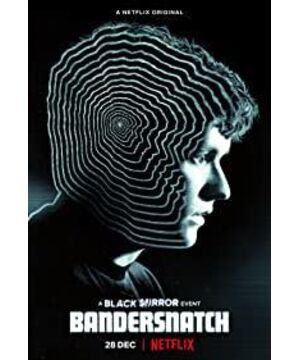"Black Mirror: Bandersnatch" (December 28, 2018) 1. Dissolution of the game The game provides a narrative for this episode. From content to form (interactive film), it is a game mode. If the characteristics of the game's continuous "repetition", "resurrection", "derived from data coding" and other characteristics are grafted into real-life stories, does it provide a way to think about reality? ideas? 2. In this episode, it is proposed that time is a tree-like structure, not linear in the traditional sense. The tree-like time is practiced in the narrative. It's worth thinking about, is there really time in the game? Isn't it just repeating death? 3. Dispelling free will and sin If life is just standing on the tree of time and making choices constantly, then where does "free will" come from? Choosing "yes" or "no" is just a different route written in the game code, then "free will" is eliminated. In this case, any choice made is an arranged route, and anything is not a "sin". "Guilty" is also dispelled. 4. The elimination of death "Death" is the end of the game. The reasons for the protagonist's several endings include the end of "it turned out to be just a play", the end of suicide by using hallucinogens, and the discovery that he was "planned and controlled" object, etc. Death is destiny, no matter what is in between. 5. Dispelling Psychological Motives What the protagonist has been unable to let go of is the loss of time control in childhood and the hatred of his father's desire for control. Ultimately, this psychological motivation is dissipated in his attempts to control time and fight against his father. His destiny was to do what he could not do as a child. It coincides with the motives of male "patricide" in psychoanalysis. 6. Dissolving control The protagonist has a strong desire to control time. His obsession stems from finding toys by himself when he was a child, making the time late and causing an accident to his mother. So I grew up and worked hard to make games, controlling the game world and time progress. However, in the side story, his father just treats him as an experiment in the subject of "planning and control". It is not that he is controlling, and that he is being controlled. 7. Construction of the concept of data empire If the game world is derived from programming data, after grafting it over according to the logic of this episode, then the real world also comes from programming data. The empire of data builds the world. This new trend of thought is denying the theory that cultural knowledge builds society, and that historical development accumulates civilization. Actually, I already thought so. ?
View more about Black Mirror: Bandersnatch reviews











